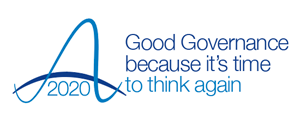The Nolan principles
08 April 2024

First published in June 2020 as part of our COVID-100 series of bulletins, this article about the Nolan Principles has proved to be one of our most popular - and we think it's still worth a read. It has been lightly edited to reflect the time that has passed since its original publication.
You won’t find many people who disagree with the Nolan Principles of selflessness, integrity, objectivity, accountability, openness, honesty and leadership. These are important elements of public services, delivering the first and fourth of King IV’s[1] meaningful outcomes of good governance: an ethical culture and legitimacy.
With the pandemic’s honeymoon period for trust in authority now over, delivering complex public health messages and maintaining confidence in significant decisions and requests becomes crucial. NHS boards must be vigilant in maintaining the asset that is public trust and confidence. The Nolan Principles offer one way of doing that.
The principles are always worth repeating:
- Selflessness: Holders of public office should act solely in terms of the public interest.
- Integrity: Holders of public office must avoid placing themselves under any obligation to people or organisations that might try inappropriately to influence them in their work. They should not act or take decisions in order to gain financial or other material benefits for themselves, their family, or their friends. They must declare and resolve any interests and relationships.
- Objectivity: Holders of public office must act and take decisions impartially, fairly and on merit, using the best evidence and without discrimination or bias.
- Accountability: Holders of public office are accountable to the public for their decisions and actions and must submit themselves to the scrutiny necessary to ensure this.
- Openness: Holders of public office should act and take decisions in an open and transparent manner. Information should not be withheld from the public unless there are clear and lawful reasons for so doing.
- Honesty: Holders of public office should be truthful.
- Leadership: Holders of public office should exhibit these principles in their own behaviour. They should actively promote and robustly support the principles and be willing to challenge poor behaviour wherever it occurs.
Introduced in 1995 by the UK government's Committee on Standards in Public Life, these important values are enshrined in codes of conduct across the public sector, from schools and government departments to hospitals. In Scotland, the principles are extended further with two additional requirements:
- Public Service: Holders of public office have a duty to act in the interests of the public body of which they are a board member and to act in accordance with the core tasks of the body.
- Respect: Holders of public office must respect fellow members of their public body and employees of the body and the role they play, treating them with courtesy at all times.
Still relevant
The Nolan Principles broke new ground when they were launched due to their focus on behaviours and culture rather than process. And in general, they’ve stood the test of time very well. A quarter of a century after their introduction, they remain as relevant as ever for every public servant.
Despite almost universal agreement with the sentiment behind the principles, there have always been challenges associated with their implementation, with some sectors embracing and applying them better than others. The NHS has always been particularly alert in applying the principles, in commissioning decisions, for example.
Former chair of the Committee on Standards in Public Life, Lord Jonathan Evans, marked the 25th anniversary of the Nolan Principles in 2019 with a thoughtful blog post, in which he wrote: “While organisations from local councils to NHS trusts and schools have published codes of conduct, the Committee’s reports in recent years have frequently identified weaknesses in scrutiny and insufficient education in organisations about the expected standards of behaviour. Good conduct is just as much about organisational culture as it is about formal rules and structures. Building and maintaining a strong ethical culture requires constant vigilance.”
At GGI, we have adopted the simple approach developed by Baroness Rennie Fritchie[2] to managing, for example, conflict of interests:
- Declare the conflict but continue to participate in the discussion.
- Declare the conflict and abstain from discussing and deciding a particular issue.
- Delegate your function, e.g. chairing, on a temporary basis.
- Resign, either before you become conflicted or once a conflict arises.
Public trust and sympathy
The governance regime introduced in March 2020 forced public sector boards to make sudden changes to the oversight rhythm that were neither designed nor tested. For example, most boards significantly reduced the time for board meetings and suspended many of the supporting committee meetings. Some boards simply failed to hold their board meetings in public. And all this at a time when significant decisions that would have long-term effects on local patterns of service configuration were being taken.
We urged boards to be alert to the potential consequences associated with these extraordinary circumstances and maintain the unique NHS asset that is public sympathy, trust and confidence.
Across every sector, COVID-19 forced organisations to make rapid and profound changes to the way they operated. Scrutiny and due process took a temporary back seat in the interests of expediency. Although the emphasis was on these decisions being temporary, in some circumstances we warned there would be no rowing back from these changes.
On reflection
We urged boards to revisit the Nolan Principles and consider how well they were informing their culture and practices.
Questions to consider, we suggested, included the following:
- When formal structures need to fall away, good governance relies on intuitive behaviours. Has the board reminded itself of its higher-level duties to maintain the standards for public life?
- Have any changes to board working taken during the emergency phase codified in writing and agreed at a formal board meeting?
- Have you revisited these temporary governance arrangements and ensured that these are carefully reviewed? Will they stand up to long-term scrutiny?
- Have you followed GGI advice that when decisions are made in haste, and without the usual thorough supporting reports, that a much higher standard of meeting recording is important to help explain the discussion and challenge that was in the room but perhaps not rehearsed in the paperwork?
- If you have not maintained public board meetings, why not? Most other NHS boards have and many report positive experiences
- Are board papers being published online in a timely manner?
- Have you set aside board time to examine the new risk environment, and translate this into a prioritisation for scrutiny?
If you'd like to discuss any aspect of this article, please call us on 07732 681120 or email advice@good-governance.org.uk
[1] Bullivant JRN et al, ‘Good Governance Handbook’, HQIP London, January 2012
[2] Bullivant JRN, ‘King IV for Health and Social Care’, Good Governance Institute London, November 2018


